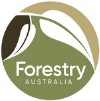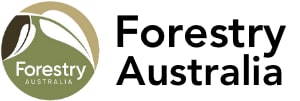
Forestry Australia – Code of Conduct
Forestry Australia Code of Conduct is the foundation upon which professional status is built and applies to all membership categories. All members of Forestry Australia are required to adhere to, and promote this code, to uphold the integrity and reputation of the profession of forestry and to safeguard the public interest in matters of safety and health and otherwise.
Forestry Australia’s Code of Conduct is composed of 6 key standards. These standards also apply to registered professional foresters and consulting foresters. They also apply when members are practising overseas. The standards are supported by explanatory statements. These statements elaborate the nature and application of the principles but do not cover all issues associated with each principle; rather, they provide guidance for members of Forestry Australia in applying ethical principles in the conduct of their profession. The sections also set out some behaviours and questions you could ask yourself when considering if your conduct meets professional standards.
Members of Forestry Australia shall:
- Act with Integrity
- Always provide a high standard of service
- Treat others with respect
- Take responsibility
- Act in a way that promotes trust in the profession
- Have regard for sustainability throughout your work
Standard 1 – Act with integrity
Always put the interests of your clients or others to whom you have a professional responsibility above your own and respect their confidentiality. Always consider the wider interests of society when making your judgments.
Always be honest. Be trustworthy in all that you do – do not deliberately mislead, whether by withholding or distorting information.
In practice this includes, but is not limited to, behaving as follows:
- Share appropriate and necessary information with your clients and/or others to conduct business and do so in a way so they can understand that information
- Respect confidential information from your clients and potential clients
- Don’t divulge information to others unless it is appropriate to do so
- Don’t take advantage of a client, a colleague, a third party or anyone to whom you owe a duty of care
- Don’t allow bias, conflict of interest or the undue influence of others to override your professional or business judgments and obligations
- Make clear to all interested parties where a conflict of interest, or even a potential conflict of interest, arises between you or your employer and your client
- Don’t offer or accept gifts, hospitality or services, which might suggest an improper obligation
- Act consistently in the public interest when it comes to making decisions or providing advice
Some of the key questions that you could ask yourself include:
- What would an independent person think of my actions?
- Would I be happy to read about my actions in the press?
- How would my actions look to Forestry Australia?
- How would my actions look to my peers?
- Do people trust me? If not, why not?
- How often do I question what I do, not just in relation to meeting technical requirements but also in terms of acting professionally and ethically?
- Is this in the interest of my client, my interest, or the interest of someone else? • Would I like to be treated this way if I were a client?
- Do I promote professional and ethical standards in all that I do?
Standard 2 – Always provide a high standard of service
Be open and transparent in your dealings. Share the full facts with your clients, making things as plain and intelligible as possible.
Know and act within your limitations. Be aware of the limits of your competence and do not be tempted to work beyond these. Only commit to what you can deliver.
Be objective at all times. Give clear and appropriate advice. Never let sentiment or your own interests cloud your judgment.
Maintain your professional competence in areas relevant to your work. Keep yourself informed of changes affecting the profession and broader developments relevant to your work and ensure your knowledge, skills and techniques are up to date. Apply this knowledge to the benefit of society.
In practice this includes, but is not limited to, behaving as follows:
- Be clear about what service your client or employer wants and the service you are providing
- Act within your scope of competence. If it appears that services are required outside that scope, then be prepared to do something about it. For example, make it known to your client, obtain expert input or consultation, or if it’s the case that you are unable to meet the service requirements, explain that you are not best placed to act for the client
- Be transparent about fees and any other costs or payments such as referral fees or commissions
- Communicate with your client in a way that will allow them to make informed decisions
- If you use the services of others, then ensure that you pay for those services within the timescale agreed
Some of the key questions that you could ask yourself include:
- Do I explain clearly what I promise to do and do I keep to that promise?
- Do I look at ways to improve the service I provide to my clients?
- How can I help my clients better understand the services that I am offering?
- Are my client’s interests being served by the advice or service I’m providing?
- Am I providing a professional service for a professional fee?
- Would the client still employ me if they knew more about me and the workload I have? If not, why not?
- Do I put undue pressure on myself and colleagues (especially junior colleagues) to do more than we actually can?
Standard 3 – Treat others with respect
Treat everyone fairly with courtesy, politeness and respect and consider cultural sensitivities and business practices.
In practice this includes, but is not limited to, behaving as follows:
- Always be courteous, polite and considerate to clients, colleagues and everyone else you come into contact with
- Never discriminate against anyone for whatever reason. Always ensure that issues of race, gender, sexual orientation, age, size, religion, country of origin or disability have no place in the way you deal with other people or do business
- As much as you are able, encourage the company or organisation you work for to put the fair and respectful treatment of staff and clients at the centre of its business culture
Some of the key questions that you could ask yourself include:
- Would I allow my behavior or the way I make my decisions to be publicly scrutinised? If not, why not? If so, what would the public think?
- Are my personal feelings, views, prejudices or preferences influencing my professional decisions?
- How would I feel if somebody treated me this way?
- Do I treat each person as an individual?
Standard 4 – Take responsibility
Be accountable for all your actions. Take full responsibility for your actions and do not blame others if things go wrong.
Have the courage to make a stand. Be prepared to act if you suspect a risk to safety or malpractice of any sort.
In practice this includes, but is not limited to, behaving as follows:
- Always act with skill, care and diligence
- If someone makes a complaint about something that you have done, then respond in an appropriate and professional manner and aim to resolve the matter to the satisfaction of the complainant as far as you can
- If you think something is not right, be prepared to question it and raise the matter as appropriate with your colleagues, within your company or the organisation that you work for, with Forestry Australia or with any other appropriate body or organisation
Some of the key questions that you could ask yourself include:
- Am I approachable?
- Does my company or organisation have a clear complaint handling procedure?
- Do I learn from complaints?
- Do I take complaints seriously?
- Am I clear about what the process is within my company or the organisation that I work for about raising concerns?
- Have I considered asking Forestry Australia for advice?
Standard 5 – Act in a way that promotes trust in the profession
Set a good example. Remember that both your public and private behavior could affect your own reputation, other members and Forestry Australia
In practice this includes, but is not limited to, behaving as follows:
- Promote what you and the profession stand for – the highest standards
- Understand that being a professional is more than just about how you behave at work; it’s also about how you behave in your private life
- Fulfill your obligations – do what you say you will
- Always try to meet the spirit of your professional standards and not just the letter of the standards
Some of the key questions that you could ask yourself include:
- Do my actions promote the profession in the best light possible?
- What is the best way for me to promote trust in myself, my company and the profession?
- Do I explain and promote the benefits, the checks and balances that exist with the professional services that I provide?
Standard 6 – Have regard for sustainability throughout your work
Practice your profession with due regard to sound ecological, social, economic and environmental principles to the advantage of present and future generations.
In practice this includes, but is not limited to, behaving as follows:
- Understand how your actions affect others and the environment and, if appropriate, question or amend that behavior
- Use your skills and experience to serve the needs of wider society • Act in accordance with the best principles for the mitigation of environmental harm
- Serve as an example to others for responsible behavior
- Encourage others to promote and advance a sustainable and resilient approach by understanding their responsibility
- Take responsibility for personal development and work towards securing change and improvements for a sustainable future
Some of the key questions that you could ask yourself include:
- Am I developing best practice by actively learning from results to improve future sustainable solutions and approaches?
- Do I help others to understand the wider picture?
- Do I encourage others to actively contribute to sustainability?

